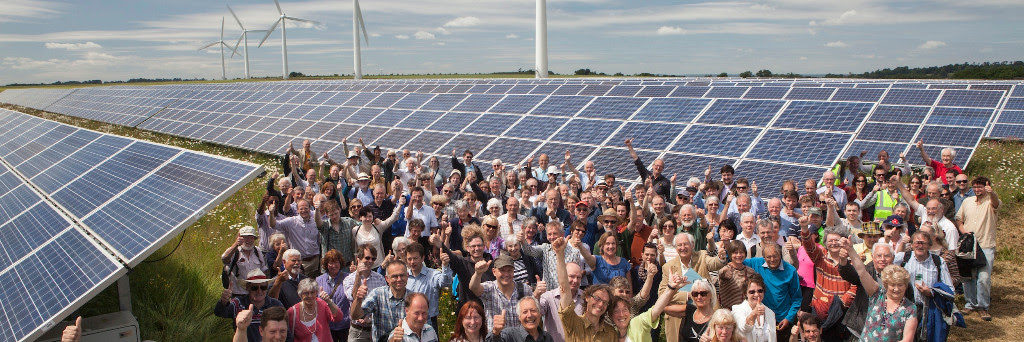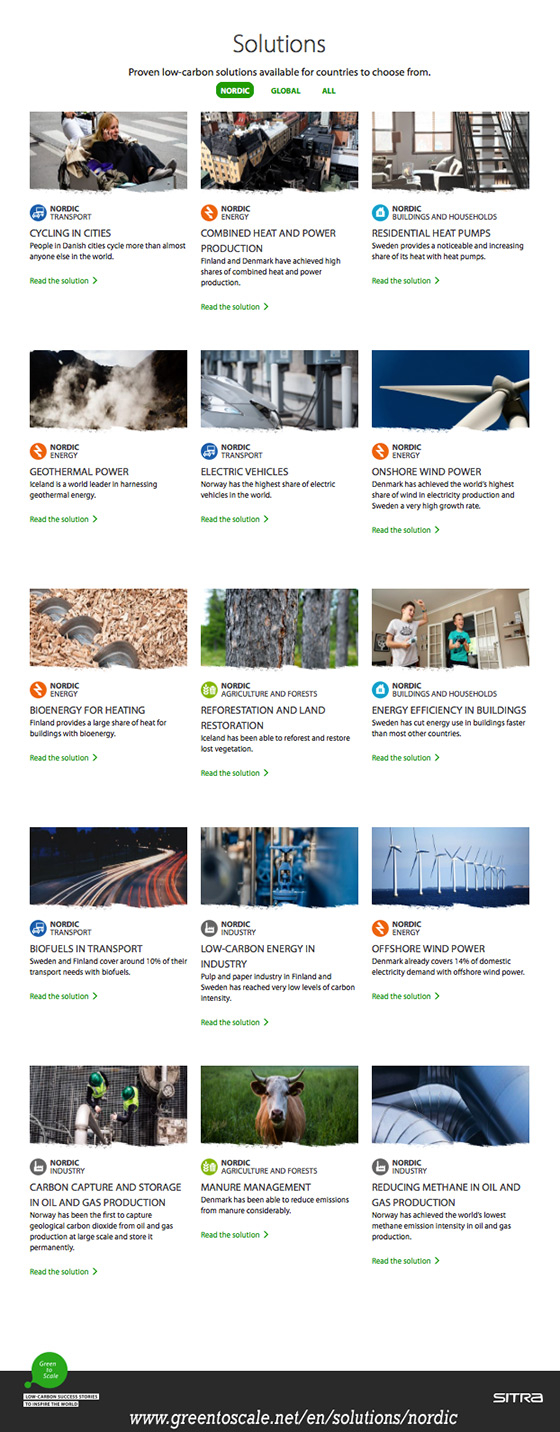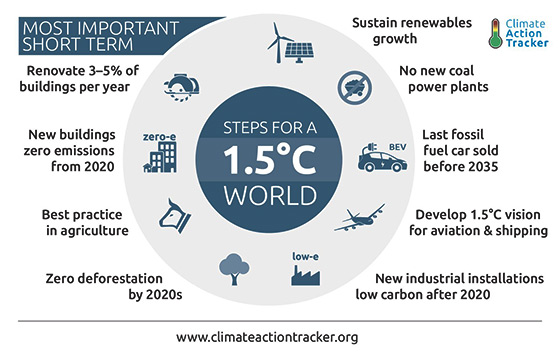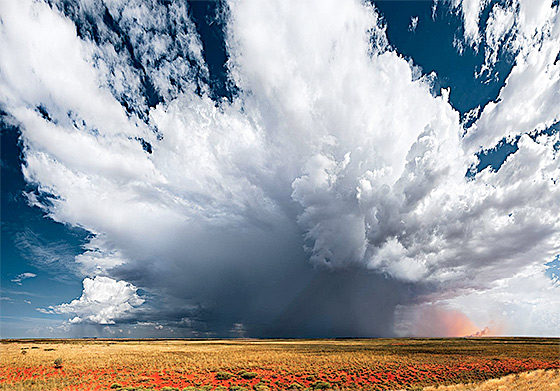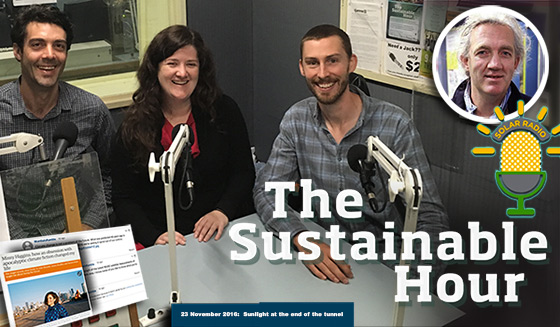
A sustainable hour about community energy on 23 November 2016. Our inspiring guests in the studio are:
Nicky Ison and Manny Pasqualini from Community Power Agency – among Australia’s leading experts in community energy (they enter at 28:30 min in the program)
Dan Cowdell, coordinator of Geelong Sustainability’s community energy project
Leo Renkin, 94.7 The Pulse’s station manager, who explains about our station’s new solar crowdfunding campaign
Listen to The Sustainable Hour no. 149 on 94.7 The Pulse:
» To open or download this programme in mp3-format, right-click here (Mac: CTRL + click)
![]()
» Subscribe to ‘The Sustainable Hour’ podcast — via iTunes or via your own podcast/RSS software
Got: solutions. Seeking: communicators
Considering the need there is to get some proper, credible information out to people about climate solutions, this is really not the time for singers and authors with a large audience to disappear into their respective ‘bubbles’. With influence and an audience follows a certain responsibility. Currently our leaders and our public broadcasters are refusing to live up to their responsibility, which makes it even more important that artists understand the role they play as communicators – and how they can make a difference here.
We’ve been impressed by singer Missy Higgins’ writings before. Maybe because so few singers say or write anything on the topic of climate change. On Tuesday 22 November 2016, Higgins wrote a ‘cultural revelation’ in The Guardian.
The headline went like this: Missy Higgins: how an obsession with apocalyptic climate fiction changed my life
Higgins’ blogtext ended with these lines:
“There my son was, glowing in all his angelic innocence, playing with the product of this sick, disposable dream. I wanted to cry. I wanted to collapse down to my knees, hold him and tell him I was sorry. That I didn’t know what the future held and I was scared. So scared. But instead, I watched him in all his wonder, in his blissful little bubble and I stayed there. If only for a sweet, sweet moment, I stayed there and I forgot.”
Missy Higgins
Two examples of the over 250 responses to Missy Higgins’ blogpost
“It’s a shame it takes a personal investment in the future to make someone look hard at the present, but still kudos to MH for doing it and writing about it here. To all the other mums and dads (and grandparents) out there who haven’t made the connection, what the heck are you doing? The place where your precious offspring are going to try to live is cooking.”
JB1010 – commenting on the above article in The Guardian by Missy Higgins
“60 people control 50% of the world’s wealth. 8 out 12 of the world’s wealthiest companies are fossil fuel companies. When these people and these companies decide or are forced by Governments to do something effective related to their emissions and global warming then we are doomed to a future that will be unprecedented in human history since humans first stood upright on the savanah a couple of million years ago. It is only 50 years away. That is when we begin to run out of fossil fuels, that is when that the CO2 levels will be such that it will take at least a million years for them to return to the 200 to 300 ppm norm throughout human history. A geo/ecological change of this magnitude in such a small geological time frame as 200 years, when such changes normally take millions of years is not likely to have a good outcome. To think otherwise is sheer arrogance and averice.”
Mancan18 – commenting on the above article in The Guardian by Missy Higgins
. . . . . . . . . . . . . . . . . . . . . . . . . . . . . . . . . . . . . . . . . . . . . . . . . . . . . . . . . . . . . . . . . . . . . . . . . . . . . . . . . . . . . . . . . . . . . . . . . . . . . . .
“This is your sunshine station!”
Can we expose you to some good news?
The answers, my friend… are no longer just blowing in the wind… but they might blow your mind! 🙂
Did you know, for instance, that every single day, there are over 500,000 solar systems installed on roofs, fields and in deserts around the world?
…or that Australian house owners by now have put up solar panels on 1,6 million rooftops in this country, which is more solar systems than the entire population of 325 million Americans own all together?
And what is interesting in a Trump-context: that the electric car and battery manufacturer Tesla made more money last quarter than the entire US oil industry made last year.
This was reported by Electrek.co on 11 November 2016. (Share on Facebook)
Electrek also wrote on 26 May 2016 that More Americans now work in solar power than the extraction of oil & gas, or coal.
Renewable energy has now finally overtaken coal as the world’s largest source of power capacity. (Share on Twitter)
What all this means is that there is sun and light – and a lot of it! – at the end of that dark tunnel which a greedy fossil fuel industry and their puppet politicians have been dragging us all through for decades, disregarding the common knowledge that humanity’s collective burning of fossil fuels has become so massive that it destroys the Earth’s biosphere which we are all depending on.
Just as much as “the answer, my friend,” (to younger readers: that’s a reference to a famous 1960s-song by Bob Dylan) actually is blowing in the wind, literally – because as author Paul Gipe recently explained: “Wind energy is also for the rest of us.”
Paul Gipe has just published a 500-page book on the topic of wind energy – introducing us to the ‘electricity rebels’ and “how they are changing the face of wind energy.”
“Wind is,” says Gipe, “our resource. We can develop it and we can own it — ourselves.”
This kind of information is important to share and let others around you know about – in particular those who fear what the US presidential election will mean for our global climate. Because fear will get us nowhere. What we need to cultivate in this world is the exact opposite: courage. Courage to move forward, and to take bold new steps into unknown territory.
Which is why we are saying: Is there any reason that we, as a community of over 200,000 people, are not already cracking at this, Geelong?
This is where today’s Sustainable Hour brings good news for you, dear listener, and for our city. Some pioneers in our community have “seen the sunlight” and have already for a while been busy taking steps in new sustainable and climate-conscious directions. In our Sustainable Studio on 94.7 The Pulse on 23 November 2016, we introduce you to four such first-movers:

About our guests
Nicky Ison from the Community Power Agency has worked with and visited over 40 community energy projects in Australia and Europe. She is also the co-founder of a new Coalition for Community Energy, which is working to address the barriers to the development of a wider Australian community energy sector.
Together with Manny Pasqualini and their team from Community Power Agency, they are organising a community energy congress in Melbourne in February next year. » More info about that here
Numerous communities all around Australia are currently making the move to repower their cities with community-owned renewable energy (CORE) – and Geelong is no different. Geelong Sustainability’s CORE Geelong project coordinator Dan Cowdell presents an update on the group’s exciting new project which will see community investors able to earn better than bank returns on local solar projects, and solar host sites reaping all the benefits of clean, renewable solar power for zero upfront costs.
And The Pulse’s station manager Leo Renkin, who has a background as a solar installer, passes by to explain how you can help make The Pulse into Geelong’s solar-powered radio station.
LISTENER SERVICE:
Content of this hour
Links, excerpts and more information about what we talked about in this Sustainable Hour
Help make 94.7 The Pulse into Geelong’s SOLAR radio station
The Pulse has launched its solar radio fund so we can offset the massive electricity costs in broadcasting a diverse range of programs. We need your support to make it happen:
94.7 The Pulse is Geelong’s community radio station. We broadcast over 80 radio programs, including 16 multicultural language programs and a weekly tv show, for nearly 250,000 people. That uses a lot of energy from our 130 volunteers, and a lot of electricity. So now we are buying SOLAR PANELS for the station and a SOLAR STAGE so we can broadcast anywhere.
We are determined to be a solar radio station – but we need your help! We have set up a crowdfunding campaign, with a range of goodies and rewards available, including merchandise and even the chance for “15 minutes of fame” on your favourite Pulse program!
Your assistance will bring not just an immediate benefit to The Pulse, but will contribute to our long-term future….helping to save the station money on our bills and save the environment! Help us save the planet, one broadcast at a time.
» Send your sunshine to the SOLAR RADIO FUND. Donate here:
www.generosity.com
» Find out more:
www.947thepulse.com
…and share this video with your friends on Facebook
. . . . . . . . . . . . . . . . . . . . . . . . . . . . . . . . . . . . . . . . . . . . . . . . . . . . . . . . . . . . . . . . . . . . . . . . . . . . . . . . . . . . . . . . . . . . . . . . . . . . . . .
Community energy in Australia
Four years in the making, Sydney Renewable Power Company launched their share offer. This means that we can now all be part of this community solar project on the new Sydney Convention Centre roof. To invest and be part of this great offer and for more information, see:
Repower Shoalhaven recently launched their ‘Repower Four’ community energy project
Clearsky Solar Investments have three community energy projects almost open
The Community Energy Congress 2017 in Melbourne in February 2017 aims to be truly representative of the community energy sector here in Australia. One of the keynote speakers is Søren Hermansen, director of Samsø Energy Academy in Denmark, who has helped the Danish island Samsø become carbon neutral. On 23 September 2015, The Sustainable Hour interviewed Søren Hermansen over the phone from Denmark, see below.
Tickets: There are early bird discounts on offer until Christmas, and special group rates if you get together with four or nine others.
» Find out more about the Community Energy Congress 2017
» Facebook page on www.facebook.com/C4CEau
Right-click here to download the audio file
Interview with Søren Hermansen in The Sustainable Hour on 23 September 2015.
. . . . . . . . . . . . . . . . . . . . . . . . . . . . . . . . . . . . . . . . . . . . . . . . . . . . . . . . . . . . . . . . . . . . . . . . . . . . . . . . . . . . . . . . . . . . . . . . . . . . . . .
“It’s time to put everything we have into shifting this culture of endless taking, to a culture based on care taking for country and one another. A culture where nowhere and no one is thrown away; a world view based on regeneration and renewal rather than domination and depletion.”
Naomi Klein
Let’s change the conversation
Earlier this month, Sydneysiders from all walks of life came came together to honour Naomi Klein and witness the awarding of the 2016 Sydney Peace Prize. They demanded urgent action towards climate justice and a world based on caring for each other and the planet. Against the backdrop of Trump’s election, Naomi Klein, Senator Patrick Dodson and Professor Gillian Triggs offered wise and courageous leadership.
Naomi’s trail-blazing work is a rallying cry for people to organise for climate justice and fairness in the face of fear mongering and bigotry.
“Naomi’s city of Sydney Peace Prize Lecture was a ray of light in an emotionally-turbulent Sydney Peace Prize week,” wrote the organisers. Watch it here:
» Naomi Klein – 2016 City of Sydney Peace Prize Lecture and Award Ceremony
From 06:00–10:00 the video shows Missy Higgins’ performance at the event
. . . . . . . . . . . . . . . . . . . . . . . . . . . . . . . . . . . . . . . . . . . . . . . . . . . . . . . . . . . . . . . . . . . . . . . . . . . . . . . . . . . . . . . . . . . . . . . . . . . . . . .
Musicians at the forefront of social change

“Musicians have an amazing influence – tapping into our emotions, changing the way we think, influencing the food we eat and the clothes we wear, literally putting words in our mouths. From the civil rights movement in the USA to indigenous rights in Australia, from the feminist movement to nuclear disarmament, musicians have been at the forefront of social change since time immemorial. The special skills of engaging communication and leading by example make musicians invaluable to any process of change,” says Tim Hollo from Green Music Australia.
Green Music Australia has researched this vital role, looking at social and cultural theory and history, communications theory and practice and more. You can read the detail in the report, ‘Key Change’.
Tim Hollo talked about Green Music Australia‘s plastic water bottles campaign in The Sustainable Hour in 2015. Hollo is board chair and CEO of Green Music Australia.
» www.greenmusic.org.au/why-green-music
Read also:
» Concerned musicians communicate climate problems
ADDITIONAL:
In other news
From our notes of this week: news stories and events we think you should know about
15 Nordic solutions can cut four gigatonnes of global emissions
By scaling up just 15 proven Nordic solutions, countries all over the world can save four gigatonnes of carbon emissions every year by 2030, which is as much as the entire EU produces today.
The costs for this scale-up equal the amount spent in just nine days on fossil fuel subsidies.
These results come from the Nordic Green to Scale study which was launched during the UN Climate Conference in Marrakech.
» Check out all the 15 solutions on www.greentoscale.net
. . . . . . . . . . . . . . . . . . . . . . . . . . . . . . . . . . . . . . . . . . . . . . . . . . . . . . . . . . . . . . . . . . . . . . . . . . . . . . . . . . . . . . . . . . . . . . . . . . . . . . .
Turning sewage into fuel
Biofuels are often touted as an alternative to fossil fuels, but many depend on raw materials that would quickly become scarce if production were scaled up. As an alternative to these alternatives, the US Department of Energy’s Pacific Northwest National Laboratory has found a way to potentially produce 30 million barrels of biocrude oil per year from the 128 billion litres of raw sewage that Americans create every day.
» Read more on www.newatlas.com
. . . . . . . . . . . . . . . . . . . . . . . . . . . . . . . . . . . . . . . . . . . . . . . . . . . . . . . . . . . . . . . . . . . . . . . . . . . . . . . . . . . . . . . . . . . . . . . . . . . . . . .
Domestic wind energy
In the new book ‘Wind Energy for the Rest of Us: A Comprehensive Guide to Wind Power and How to Use It’ Paul Gipe argues that wind energy is too important to be left to electric utilities and their subsidiaries alone. “Wind energy is also for the rest of us,” he says. “It is our resource. We can develop it and we can own it — ourselves.”
Here is a preview of a Danish catalogue with domestic wind turbines, provided by Nordic Folkecenter for Renewable Energy:
www.folkecenter.net (PDF)
Here is a story from India about two young entrepreneurs who are developing a small wind turbines business:
» Educate Inspire Change – 6 June 2016:
For the cost of an iPhone, you can now buy a wind turbine that can power an entire house for lifetime
. . . . . . . . . . . . . . . . . . . . . . . . . . . . . . . . . . . . . . . . . . . . . . . . . . . . . . . . . . . . . . . . . . . . . . . . . . . . . . . . . . . . . . . . . . . . . . . . . . . . . . .
Ten important steps towards climate safety
These are ten important, short-term steps that key sectors need to take to help the world achieve the Paris Agreement’s 1.5°C limit, according to Climate Action Tracker.
The first and most important sector is the electricity sector, which makes up one quarter of global emissions. It needs to undertake the fastest transformation.
All key sectors — energy generation, road transport, buildings, industry, forestry and land use, and commercial agriculture — have to begin major efforts to cut emissions by, latest, 2020.
By 2025 they should have accelerated these efforts in order to reach globally aggregated zero carbon dioxide emissions by 2050.
The full list of Climate Action Tracker’s ten short-term steps looks like this:
1) Electricity: sustain the growth rate of renewables and other zero and low carbon power until 2025 to reach 100% by 2050
2) Coal: no new coal power plants, reduce emissions from coal by at least 30% by 2025
3) Road transport: last fossil fuel car sold before 2035
4) Aviation and shipping: develop and get agreement on a 1.5°C compatible vision
5) New buildings: all new buildings fossil-free and near zero energy by 2020
6) Building renovation: increase rates from <1% in 2015 to 5% by 2020 7) Industry: all new installations in emissions-intensive sectors are low-carbon after 2020; maximise material efficiency
8) Reduce emissions from forestry and other land use to 95% below 2010 levels by 2030, stop net deforestation by the 2020s
9) Commercial agriculture: keep emissions at or below current levels, establish and disseminate regional best practice, ramp up research
10) CO2 removal: begin research and planning for negative emissions
Source:
» Climate Action Tracker – 16 November 2016:
The ten most important short-term steps to limit warming to 1.5°C
Share on Twitter:
The ten most important short-term steps to limit warming to 1.5°C https://t.co/CTOn4YwT8B pic.twitter.com/oE8kyIzDkH
— Tree Alerts (@TreeAlerts) November 17, 2016
» Read more on www.climateactiontracker.org
. . . . . . . . . . . . . . . . . . . . . . . . . . . . . . . . . . . . . . . . . . . . . . . . . . . . . . . . . . . . . . . . . . . . . . . . . . . . . . . . . . . . . . . . . . . . . . . . . . . . . . .
Make a submission to the Community Energy Discussion Paper
Under the Baillieu government, Victoria had some of the world’s worst anti-wind planning laws. Across the state, the government implemented two-kilometre “veto zones” around wind turbines and blanket “no-go zones” for wind farm developments. Not only did this stunt Victoria’s renewable energy sector, but it also disadvantaged communities. In the Macedon Ranges, for instance, a community wind farm was sidelined due to falling within a no-go zone.
The Andrews government went to the 2014 state election with a promise to redesign the laws to better enable communities to have the power to choose if they want wind development in their local area. Whilst the Andrews Government’s commitment to change the laws was a positive first step, we need to see this translated into action for community wind projects.
Now, the state government has recently launched the ‘Community Renewable Energy Projects: PiLoR and planning issues discussion paper’. This discussion paper provides an opportunity to affect change in some of the key areas that are still restricting community projects. The three main questions posed in this paper are:
• Should community renewable energy projects be defined differently to other types of energy generation projects and what should this definition address?
• Should the Payment in Lieu of Rates (PiLoR) methodology be updated and should there be a second methodology?
• Should planning arrangements for wind farms be changed?
Hepburn Wind explained about this in a recent newsletter, and would like to see these issues addressed so that community projects across Victoria can flourish. So they have partnered with Embark and Friends of the Earth to call on the government to:
• Create a clear set of characteristics that define community renewable energy projects
• Waive the $40,000 rates fee for community energy projects
• Remove the blanket ban zones from wind farm planning laws for all wind projects
The government is currently accepting submissions on the discussion paper. Submissions close on 28 November 2016.
» Send your submission today and show your support for community energy projects across Victoria. The campaign provides an email template you can use. You can also alter the text if you wish to make additional comments.
. . . . . . . . . . . . . . . . . . . . . . . . . . . . . . . . . . . . . . . . . . . . . . . . . . . . . . . . . . . . . . . . . . . . . . . . . . . . . . . . . . . . . . . . . . . . . . . . . . . . . . .
United Solutions of America
50 solutions, state by state
For their 20th-anniversary issue, Yes! Magazine asked a dozen reporters to speak with hundreds of people around the United States — activists, entrepreneurs, parents, politicians, religious leaders, scientists, students, workers — to bring together 50 favorite inspiring solutions. “These are the ideas making the places we live more sustainable and inclusive — and bringing communities together,” writes Yes! Magazine.
» Read more on www.yesmagazine.org
. . . . . . . . . . . . . . . . . . . . . . . . . . . . . . . . . . . . . . . . . . . . . . . . . . . . . . . . . . . . . . . . . . . . . . . . . . . . . . . . . . . . . . . . . . . . . . . . . . . . . . .
A leader of the sustainability revolution
Burlington in Vermont, a city of 42,000 citizens, has earned the distinction of being America’s first 100 percent renewable city, meaning it draws all of its electricity from biomass, hydropower, wind and solar. Net energy costs in the city are cheap enough that the city has not had to raise electric rates for its customers in eight years.
“Burlington’s decades-long commitment to sustainability has paid off with cheap electricity — and some pretty great homegrown food.”
» Politoco Magazine – 17 November 2016:
America’s First All-Renewable-Energy City
![]() Podcasts and posts about climate change
Podcasts and posts about climate change
Acknowledgement
We at The Sustainable Hour would like to pay our respect to the traditional custodians of the land on which we are broadcasting, the Wathaurong People, and pay our respect to their elders, past, present and future.
The traditional owners lived in harmony with the environment and with the climate for hundreds of generations. It is not clear – yet – that as European settlers we have demonstrated that we can live in harmony for hundreds of generations, but it is clear that we can learn from the indigenous, traditional owners of this land.
When we talk about the future, it means extending our respect to those children not yet born, the generations of the future – remembering the old saying that…

The decisions currently being made around Australia to ignore climate change are being made by those who won’t be around by the time the worst effects hit home. How utterly disgusting, disrespectful and unfair is that?
Streaming live

» The Sustainable Hour is streamed live on the Internet every Wednesday from 11am to 12pm (Melbourne time):
www.947thepulse.com – click on ‘Listen Live’
Podcast archive
Hours and hours of sustainable podcasts
Listen to all of The Sustainable Hour radio shows in full length and in selected excerpts:
» Archive on climatesafety.info
» Archive on itunes.apple.com – iPhone friendly
. . . . . . . . . . . . . . . . . . . . . . . . . . . . . . . . . . . . . . . . . . . . . . . . . . . . . . . . . . . . . . . . . . . . . . . . . . . . . . . . . . . . . . . . . . . . . . . . . . . . . . .
Promote The Sustainable Hour
Print this A4-poster and put it on a wall or a board at your work place, a local café, shop or where ever you think there’d be people who’d find this information interesting.  Go to our Facebook-page and give us a click on the LIKE-button. Let the The Sustainable Hour’s listeners know about your green product. To become a business supporter or sponsor, contact: Liz Carr, Marketing & Business Development, 94.7 The Pulse
Go to our Facebook-page and give us a click on the LIKE-button. Let the The Sustainable Hour’s listeners know about your green product. To become a business supporter or sponsor, contact: Liz Carr, Marketing & Business Development, 94.7 The Pulse
94.7 The Pulse
» 947thepulse.com – Geelong’s Premier Community Radio Station
Receive the podcast in your mailbox
Apart from your email address and surname, all other fields are optional
The Sustainable Hour on social media
» Facebook: Overview of all podcast front covers
» Catch up on Twitter: www.twitter.com/SustainableHour » Twitter tag: @SustainableHour
Share on Twitter
» Share this podcast on www.twitter.com
Sunlight at the end of the tunnel https://t.co/ytcrS7A3cE pic.twitter.com/dFM7dfYUwR
— The Sustainable Hour (@SustainableHour) November 24, 2016
Share on Facebook
» If you’d like to share this page on Facebook, then copy this link:
(First paste the long link in a field on Facebook, wait until the photo has loaded, delete the link again, and then press ‘Post’)
Share on Pinterest
» Share this page on ![]()
» More Sustainable Hour posts on Pinterest
» Explore general topics on Pinterest:
Climate Change | Global Warming | Renewable Energy
“Participation – that’s what’s gonna save the human race.”
Pete Seeger, American singer


